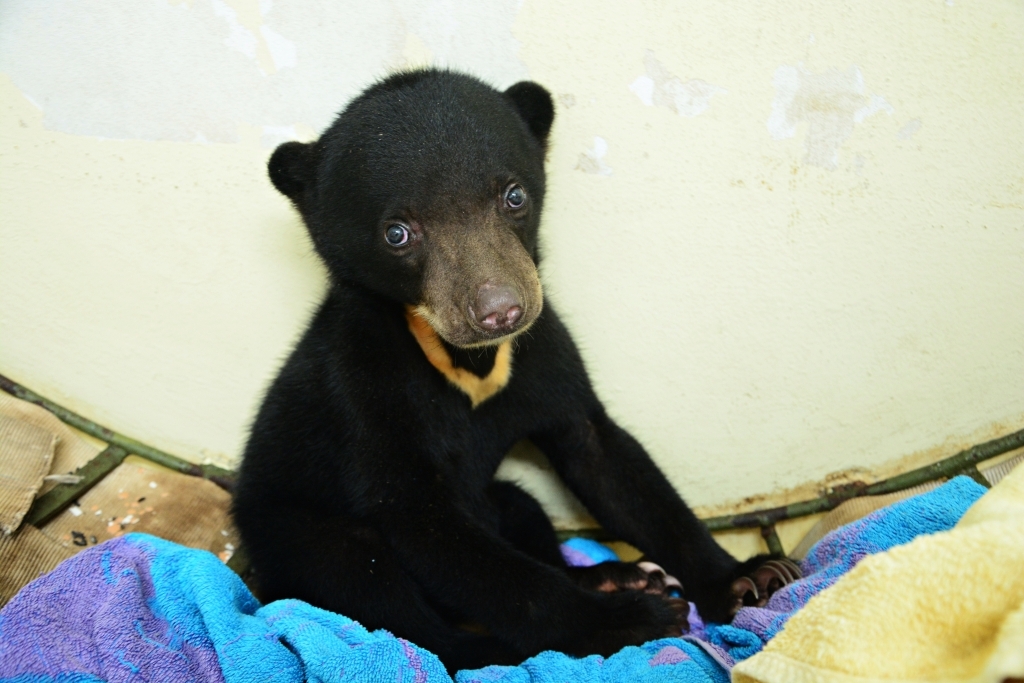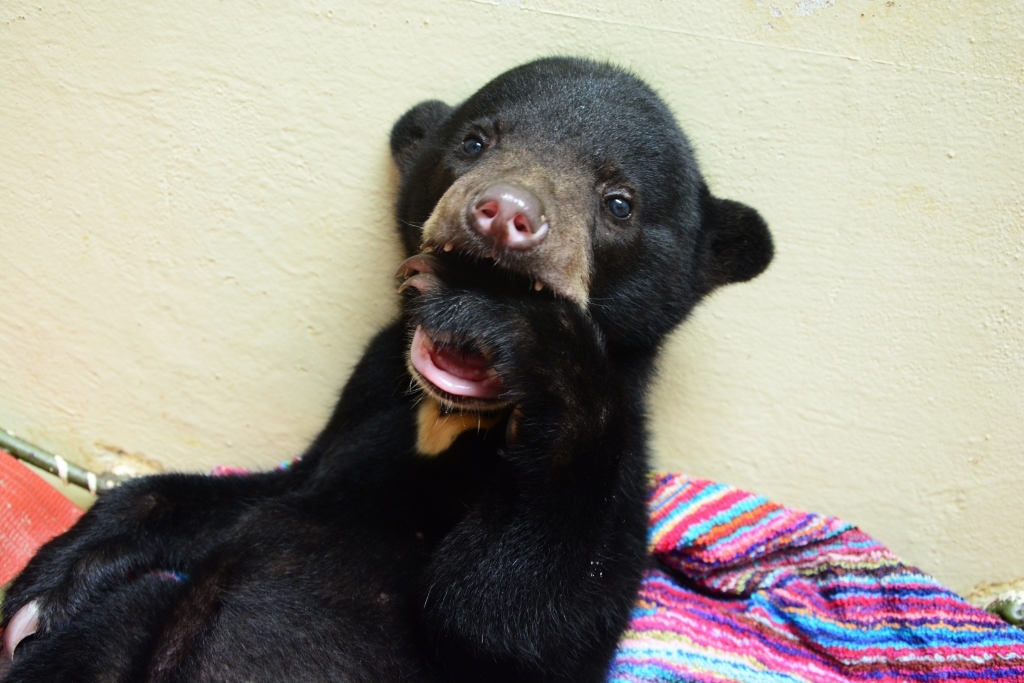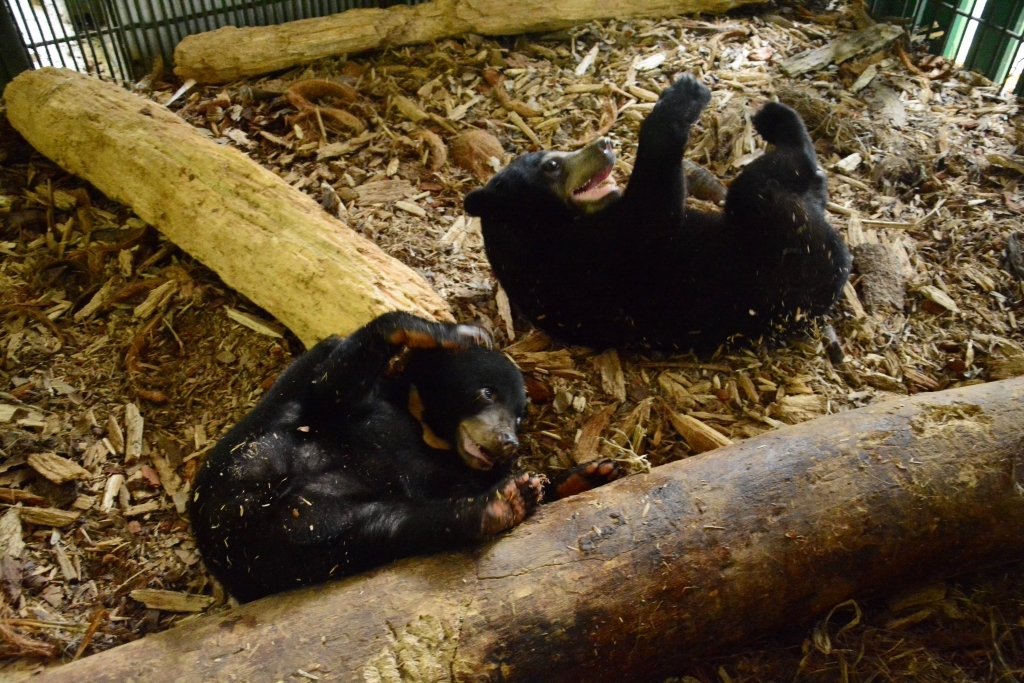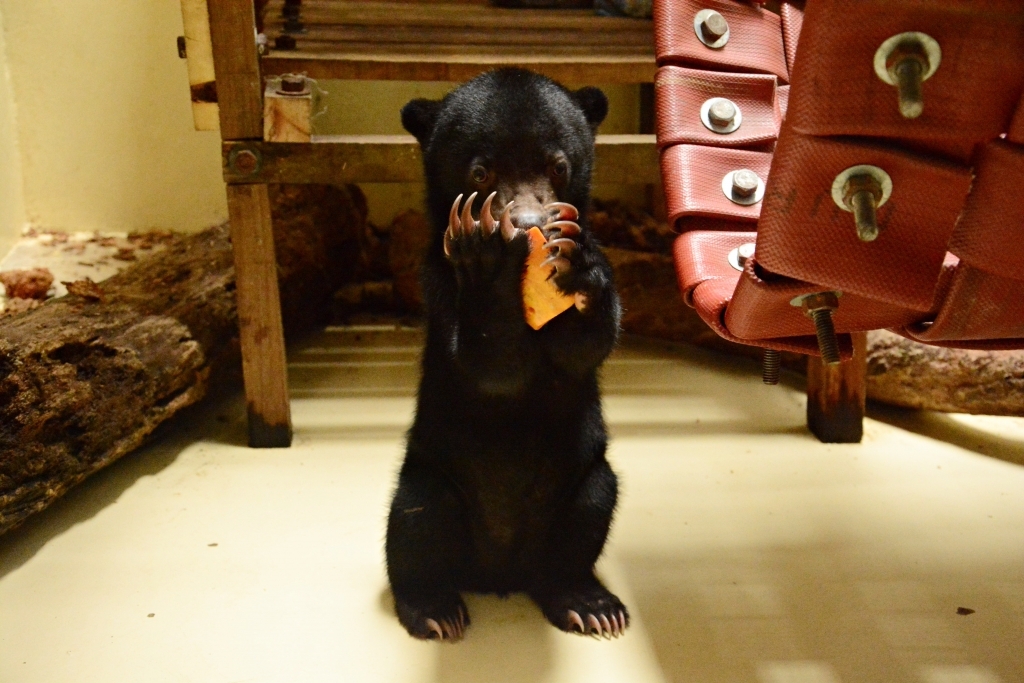 Bornean Sun Bear Conservation Center
Bornean Sun Bear Conservation Center
Meet “Wawa”, a sun bear cub that was found alone and lifeless in a Malaysian forest.
It is still unclear what happened to her mother, but knowing that sun bear mothers rarely abandon their cubs, experts believe that her mother was likely poached for her body parts.
Thankfully, Wawa was taken in by the incredible team at Bornean Sun Bear Conservation Center (BSBCC), a safe haven and recovery facility for sun bears located in Sabah.
 Bornean Sun Bear Conservation Center
Bornean Sun Bear Conservation Center
Severely dehydrated and weak from her ordeal, staff at BSBCC got Wawa started with fluids and eventually transitioned her to a diet of fruits and milk.
Now, nearly seven months later, staff cheerfully report that she has gained strength and is back is in excellent health! Wawa is now learning how to forage and climb, and was recently introduced to another young bear named “Dodop.” The two reportedly play well together and enjoy each other’s company.
Lin May, Research and Reintroduction Officer at BSBCC told us, “Both of them have a very close bond and love hanging out together.” She also mentioned that this month Wawa and Dodop will be moving to “Bear House” to begin the next phase of their rehabilitation process.
Eventually, they will both be reintroduced to the wild for a second chance at life.
 Bornean Sun Bear Conservation Center
Bornean Sun Bear Conservation Center
The only center of its kind
Founded by Wong Siew Te in 2008, BSBCC is the only sun bear conservation center on the planet. Currently, 41 ex-captive and orphaned bears reside at the facility. The center offers the sun bears a natural environment that facilitates rehabilitation and reintroduction into the wild.
Why is this center so important? Sun bears face countless threats from humans, and their populations are declining rapidly.
First, they’re hunted illegally for the wildlife trade. Mothers are killed so that their cubs can be captured and sold as pets, or their gall bladders are removed for Chinese traditional “medicine.” Sometimes, they’re held in tiny cages so that their bile (fluid produced by the liver) can be removed on a regular basis. Bear bile is used in traditional “medicine” and in products like shampoo, cough drops, and even soft drinks. While all of this is illegal, enforcement is lax or sometimes non-existent.
 Bornean Sun Bear Conservation Center
Bornean Sun Bear Conservation Center
Secondly, the forests that they depend on for survival are being rapidly decimated by loggers. They have nowhere to go.
Sun bears are an irreplaceable species. They’re the smallest of the bear species, and extremely rare; they’re found only in certain regions of southeast Asia. They’re listed under the the IUCN Red List of Threatened Species as Vulnerable, and their populations continue to decline.
These bears stand out from other species by their jet black fur, prominent dog-like snout, extremely long tongue, and light crescent-shaped patch on their chest.
How you can help
To help BSBCC and this irreplaceable species, consider following the BSBCC Facebook page, or submitting a donation.




